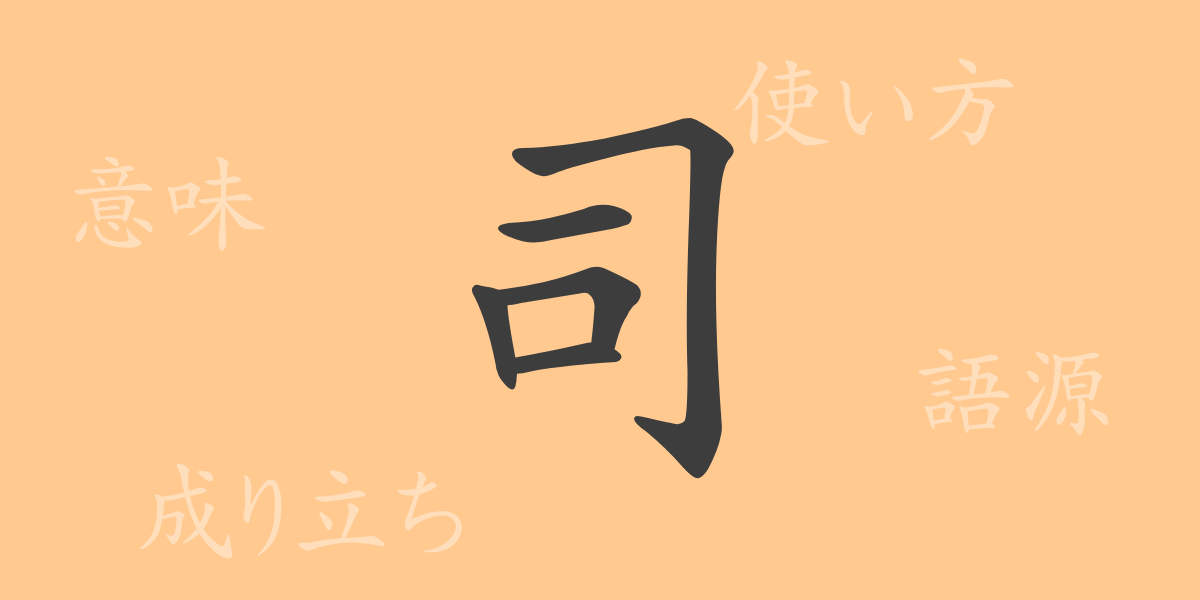The richness of the Japanese language is greatly expressed through its complex and beautiful writing system. Joyo kanji (じょうようかんじ), or commonly used kanji, are essential for communication in Japan, each carrying its unique history and meaning. The kanji “司(し)” plays a special role in Japanese culture and language, and this article will explore its allure.
Origins of 司(し)
The kanji “司(し)” has its origins in ancient China. It is composed of the character for “mouth” (口(くち)) and “official” (吏(り)), symbolizing the mouth of an official giving commands. Originally, it represented an official who conveyed orders and later evolved to mean control and management. Thus, “司(し)” has long been used to denote authority and managerial positions.
Meanings and Usage of 司(し)
The kanji “司(し)” means “to manage,” “to direct,” or “to preside.” It is often used in contexts related to overseeing or managing tasks in public or organizational settings. For example, “司会(しかい)” refers to a person who moderates a meeting or event, while “司法(しほう)” pertains to the administration of justice through courts.
Readings, Stroke Count, and Radical of 司(し)
How is the kanji “司(し)” read in Japanese, and what are its structural details?
- Readings: The on’yomi (音読み) reading is “シ(し),” and there is no specific kun’yomi (訓読み) reading.
- Stroke count: It has a total of 5 strokes.
- Radical: “司(し)” itself is treated as a radical.
Idioms, Phrases, and Proverbs Using 司(し) and Their Meanings
What idioms, phrases, and proverbs include “司(し)”? Here are a few examples:
- 司会(しかい): The role of moderating a meeting or ceremony.
- 司法(しほう): The administration of justice through legal courts.
- 司書(ししょ): A librarian who manages library resources and assists users.
- 司令(しれい): Commands or directives, especially in a military context.
- 司法取引(しほうとりひき): Plea bargaining, where a defendant cooperates with prosecutors for a favorable sentence.
Conclusion on 司(し)
The kanji “司(し)” symbolizes management, direction, and control, playing a significant role in Japanese language. Its simple yet powerful meaning appears in various compound words and terms, frequently encountered in daily life and professional settings. Through this article, we have gained an understanding of the deep history and diverse applications of “司(し).”

























